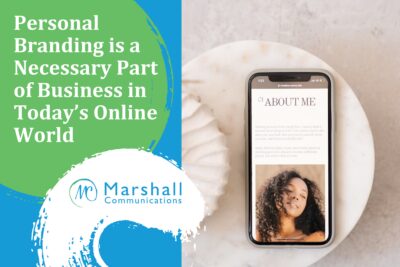Posted on: October 23, 2023
By Nancy Marshall, The PR Maven®

Did you know that there are millions of podcasts? Or that nearly 80% of U.S. adults listen to them?
You don’t need me to state the obvious: Podcasting is big business.
What’s less obvious is how to succeed as a podcaster. Which topics resonate most with your target audience? Who is your target audience? Which formats are the most popular? How often should you release a new podcast? Who should you interview, if anyone?
I’ve been podcasting since 2018, long before the Covid-19 pandemic took podcasts to new heights. When I first started podcasting, it was a concept with unknown opportunities (or limitations). The potential of podcasting seemed limitless, but it wasn’t apparent that it could become big business, even on an individual level.
Over the years, my podcast has evolved in different ways, gaining new listeners and introducing them to a wide range of interesting guests. I have now released more than 240 episodes, many of them interviews with thought leaders in different industries. From Instagram and LinkedIn basics to using ChatGPT and the future of artificial intelligence, I have learned so much from my merry band of interviewees, and hopefully, my listeners feel the same way.
I’ve learned a lot about the art of podcasting along the way too. Here are some of the key lessons.
Your Listeners Will Lead The Way
As a podcaster, it is imperative to take stock of your past episodes and figure out how they performed. An episode is a proof of concept, one way or the other. It can either show you what works or warn you about what doesn’t work. Every time an episode is released, it essentially serves as cold, hard data. And the numbers don’t lie.
Once you unpack the research, the findings can be instructive for the future. Perhaps your episodes on social media are the most popular, meaning that you should double down and release more of them. Maybe the ones on the newspaper industry resonate less, requiring a strategic pivot to other subject matter.
Whatever the case may be, always listen to your target audience. They will help you determine the right content. Sometimes, podcasters can be creative and give people what they didn’t even know that they needed. But more often than not, listener feedback is the best way to determine your creative direction.
Your Guests Can Make Or Break Your Success
Keeping my own listeners in mind, I often go back through older episodes and use them as blueprints for future ones. This process leads to a logical question: Why did that one do so well?
For example, two of my most popular episodes featured Lieutenant Tim Cotton from the Bangor Police Department (in Maine). A veteran police officer, Lt. Cotton has a fondness for upholding the law with a sense of humor, so he is an ideal podcast guest.
I asked myself: Why are those episodes so popular? And I learned an important lesson: A guest’s personality can be the difference between success and failure. The Cotton episodes performed well because he brought a large, engaged audience with him from Facebook, but also because he willingly and generously shared links to the podcast through his own social media platforms.
In the process, Cotton’s fans became my listeners. What I heard from his fans who tuned into the podcast was that they had never actually listened to his voice; they had only read his written content on Facebook. Many of his fans were interested in hearing the sound of his voice, and so they naturally came to me.
Thoroughly Vetting Guests Is Crucial
Not all guests have the same impact, even if they’re popular on their own. For instance, I have interviewed other people with massive followings, but they weren’t necessarily committed to sharing the podcast episode with their audience. Because there was no follow-up, they didn’t boost the listener numbers—our potential was not realized.
This brings me to the key lesson: If you’re a podcaster who invites guests for interviews, you need to vet them thoroughly. Do your due diligence beforehand. Make sure that your interviewees will share your podcast with their own unique audience, just like Lt. Cotton did. That’s how your audience grows—reaching people who didn’t know about you before.
Similarly, if you’re invited on another podcast, it behooves you to share that podcast link with your own audience. Do it willingly and generously, and don’t be selfish. Podcasting is mutually beneficial when there is audience overlap. After all, many people listen to multiple podcasts.
The spirit of giving is the spirit of podcasting. That’s the best way to live life, and gain new listeners too.
This article originally appeared on the Forbes Agency Council CommunityVoice in September 2023.










